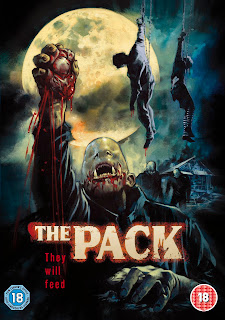Tenebrae

1982 Dir. Dario Argento After a detour into Gothic, witchy, fairy tale horror with Suspiria (1977) and Inferno (1980), Tenebrae marked director Dario Argento's return to the gialli which he helped popularise in the early Seventies. Based on the filmmaker’s own experiences of an unhinged fan obsessed with his work, Tenebrae is generally regarded as one of his finest films. It follows the story of American mystery-thriller novelist Peter Neal, whose arrival in Rome to promote his latest title coincides with a series of violent murders – the perpetrator of which claims to have been inspired by Neal’s latest book. When the author himself begins to receive death threats from the killer he must use his literary know-how to snare the slasher before he becomes the next victim. Unfolding as a cunningly reflexive critique of the Italian giallo, violence in cinema, and indeed Dario Argento’s own body of work, Tenebrae directly addresses the misogyny he has often...





